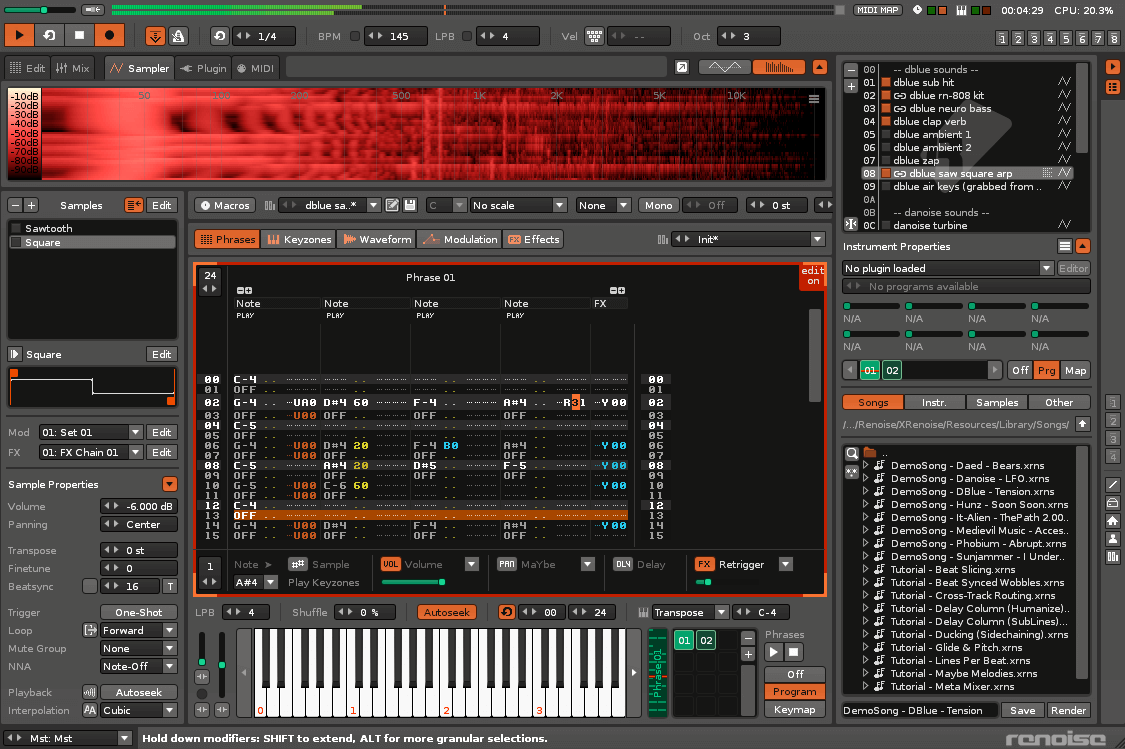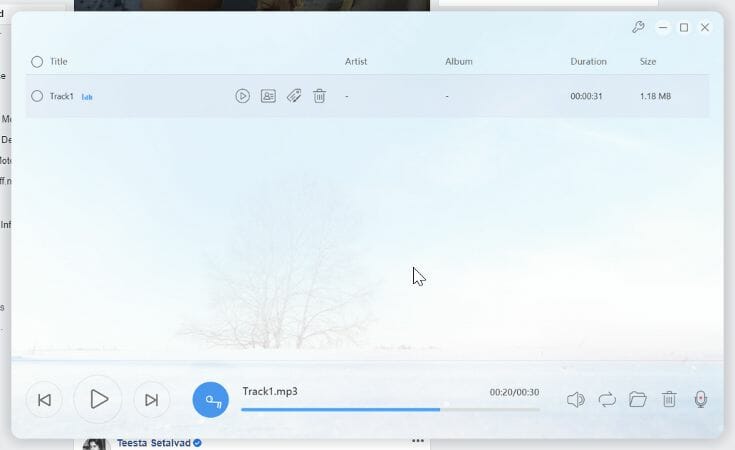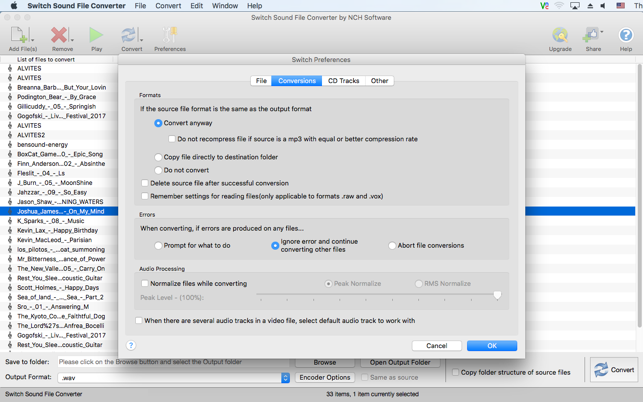Rip audio CD or grab audio from DVD on Windows and Mac. Open-source and completely free of charge without ads or virus. Keep the original quality when extracting audio tracks from optical discs. Listen to the audio file while ripping it from DVD. This DVD audio extractor is able to rip a wide range of disc types.
TAudioConverter is a small utility meant for converting audio files.
- For example, if you want to extract the soundtrack from the DVD movie as MP3 file, you can choose 'MP3' from 'Audio' as the output format. At this step, you are also free to do some more settings and adjustment, just click 'Settings' to customize output audio profile parameters like codec, bit rate, sample rate, channels, etc.
- Sunday, 11 July 2010 14:00 fre:ac is a free audio converter and CD ripper with support for various popular formats and encoders. It converts freely between MP3, M4A/AAC, FLAC, WMA, Opus, Ogg Vorbis, Speex, Monkey's Audio (APE), WavPack, WAV and other formats. With fre:ac you easily rip your audio CDs to MP3 or M4A files for use with your hardware player or convert files that do not play with.
- Pazera Free Audio Extractor Portable. Free application that converts audio files to MP3, AAC, AC3, WMA, FLAC, M4A, OGG, WV, AIFF or WAV format. Moreover, the program allows extraction of audio tracks from video files without loss of sound quality. Supported input formats: over 70 audio and video formats, including AVI, MP4, MP3, MOV, FLV, 3GP, M4A, MKV, WMA.
- Click “Open Source” to add video files to this audio extractor from video online. You can also add videos from Google Drive, Dropbox or just copy and paste the video URL you want to split audio from video. Choose output format. You can use it to extract audio as MP3, WAV, M4A, FLAC, and OGG.
Not only can TAudioConverter convert music and general audio files from one format to another, but it can also extract parts of audio from a file.
Open Source Zip Extractor
Some of the options including in this freeware program are the ability to choose the audio encoder, setting the quality and bitrate and whether or not to maintain the original bit depth.
In terms of looks, the interface of this app is generally nice to look at and easy to use. You may also select between different skins, the default being one inspired by the iOS.
Overall, TAudioConverter includes many useful options and does a nice job at converter audio files without any fuss or trouble.
Features and highlights
Open Source Extractor
- Multithreaded
- Convert audio files to audio files
- Extract audio files from videos and encode them
- Encode to aac, aac , ogg, mp3, flac, wav, opus, ac3, mpc, ape, tta, tak
- Select between multiple encoders
- Fully portable, can be run from anywhere
- Apply effects to audio files
- Simple clear interface
TAudioConverter on 32-bit and 64-bit PCs
This download is licensed as freeware for the Windows (32-bit and 64-bit) operating system on a laptop or desktop PC from media converter software without restrictions. TAudioConverter 0.9.9.3899 is available to all software users as a free download for Windows 10 PCs but also without a hitch on Windows 7 and Windows 8.
Compatibility with this audio converter software may vary, but will generally run fine under Microsoft Windows 10, Windows 8, Windows 8.1, Windows 7, Windows Vista and Windows XP on either a 32-bit or 64-bit setup. A separate x64 version of TAudioConverter may be available from ozok.
Filed under:- TAudioConverter Download
- Freeware Media Converter Software
- Open source and GPL software
- Audio Converting Software
You can extend the media extractor and media codec components using vendorextensions. The MediaSession2 and MediaParser APIs can't be customized (but youcan upstream changes for the legacy MediaPlayer and MediaSession APIs).
To support additional media types in the Android media framework, you need tocreate a custom extractor and decoder. For example,to add support for Windows Media video in AVI files, you need to create an AVIExtractor and a Windows Media video Decoder.
About extensions
If the default media extractors don’t meet your requirements, you can placecustom extractor plugins in /system/lib[64]/extractors/. The extractor processautomatically loads extractor plugins from the Google-provided APEX package andfrom /system/lib[64]/extractors/.
Similarly, you can set up custom media codec services that use the Codec 2.0interface defined in frameworks/av/media/codec2/core/. For a basicimplementation, refer to frameworks/av/media/codec2/hidl/services/. Thelibrary entry point is the C2ComponentStore interface. For an example, referto the default software codec store implementation atframeworks/av/media/codec2/vndk/C2Store.cpp.
When using your own APEX, structure the codec service and load the APEX fileusing the same processes as the mediaswcodec service. To do so, define atop-level shared library responsible for registering all C2 components, thencreate an APEX package (with transitive dependencies) that resides in the vendorpartition. When the vendor codec service process starts, it can then load thistop-level entry point.
Creating an extractor
Note: Before adding a custom extractor, consider extending an existing extractorand upstreaming your changes to make them part of the platform (and reducemaintenance).When adding an extractor for a new format, ensure the extractor depends only onstable NDK APIs and doesn't depend on any private APIs. Extractors shouldimplement the API defined byframeworks/av/include/media/MediaExtractorPluginApi.h and can use the C++convenience wrappers inframeworks/av/include/media/MediaExtractorPluginHelper.h. Because Android10 or higher supports only the highest version of theextractor API, be sure to model your extractor after the extractor with thehighest API version number.
Place custom extractors in /system/lib/64/extractors or a vendor APEX,which is opened along with the Google APEX containing the Google extractors. Toverify the framework loaded your extractor, run the following command.
You should get a list of available extractors that is similar to the following.
If your custom extractor supports a format that is already supported by aGoogle-provided extractor, you can force the framework to use your extractor byusing the Sniff() function to return a higher confidence level than theGoogle-provided one.
When the media framework loads your extractor (from /system/lib/64/extractorsor from a vendor APEX), it recognizes the file and gets information about itscontent. The next step is to add a decoder for the format so the framework canunderstand how to parse the file content.




Creating a custom decoder
Open Source Audio File Extractor Software

You need a custom decoder for any format that isn't already supported by aGoogle-provided decoder. For example:
To add media framework support for AVI files containing MP3, you need an AVIextractor but don't need a MP3 decoder because one already exists.
To add media framework support for AVI files containing Windows Media, youneed both an AVI extrator and a Windows Media decoder.
Adding a new decoder is similar to adding your own hardware decoders for AVC orHEVC.
Open Source Audio File Converter
While the extractor publishes the MIME type of the media tracks that itcontains, the codecs that support these MIME types need to be present for thefile to be fully supported. The actual MIME type string used is strictly anagreement between the extractor and the codec (the string doesn't need to beadded to the MediaDefs.h file).
Integrating with media scanner
Audio File Extractor
The media scanner looks for new file types and adds them to the media database.To have the media scanner handle your custom file type, the scanner needs toknow about it. In Android 10 or higher, MimeUtils (inlibcore) maintains the MIME-to-extension mapping. Previously, this mapping washandled in the MediaFile.java file, which continues to contain a mapping fromMIME type to MTP format constants.
Open Source Audio Samples
An extractor can export a list of filename extensions they support (such as MP3or MP4). However, only LegacyMediaScanner uses that; it has no effect onModernMediaScanner, which used by default.